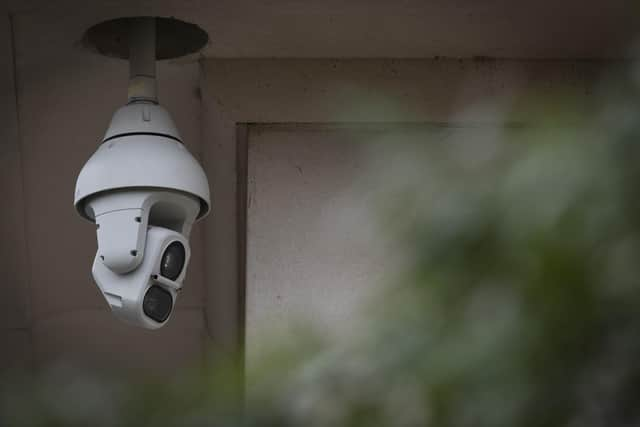Is it illegal to set up a CCTV camera or video-equipped doorbell on your house?
and live on Freeview channel 276
Having security systems at home is becoming more popular, from traditional set-ups to video-equipped doorbells.
Although, you may not realise that there are legal considerations you need to keep in mind before getting them.


Here is what the law says:
Advertisement
Hide AdAdvertisement
Hide AdAny cameras set up at a property need to take care not to encroach on your neighbours.
For example, if their home, garden, and any shared spaces are shown, it may be in breach of privacy regulations.
This is covered in Article eight of the Human Rights Act 1998.
What is the Human Rights Act 1998?
Article eight is a right to respect for private and family life.
Advertisement
Hide AdAdvertisement
Hide AdThe legislation posted on the Government website states: ‘Everyone has the right to respect for his private and family life, his home and his correspondence.
‘There shall be no interference by a public authority with the exercise of this right except such as is in accordance with the law and is necessary in a democratic society in the interests of national security, public safety or the economic well-being of the country, for the prevention of disorder or crime, for the protection of health or morals, or for the protection of the rights and freedoms of others.’
There are also other things to consider when setting up CCTV cameras, including General Data Protection Regulation (GDPR).
What is GDPR?
GDPR is a data protection law used to safeguard people’s information.
Advertisement
Hide AdAdvertisement
Hide AdIn the UK, it is enforced by Information Commissioner’s Office (ICO), which also covers the Data Protection Act 2018 (DPA).
The government has issued guidance relating to these laws.
A statement on their website said: ‘If your CCTV system captures images of people outside the boundary of your private domestic property – for example, from neighbours’ homes or gardens, shared spaces, or from public areas – then the GDPR and the DPA will apply to you.
‘You will need to ensure your use of CCTV complies with these laws.’
Private domestic property means the boundary of the property – including the garden – where you live.
Advertisement
Hide AdAdvertisement
Hide AdIf your CCTV captures people outside this area, then it is subject to data protection laws.
The ICO state on its website it is not illegal to cover those areas, but the CCTV owner is the data controller.
You will have to provide a clear and justifiable reason for capturing images beyond your property boundary, to an individual who asks, or the ICO.
This can be done in writing, or verbally.
Explanations for why you think capturing the images is more important than invading the privacy of your neighbours, and passers-by, also need to be given.
Advertisement
Hide AdAdvertisement
Hide AdThe government body also advises anyone to let their neighbours know if CCTV is being installed.
Having a notice visible on your home if recording is taking place is encouraged.
CCTV camera operators also need to delete their footage regularly, and not to capture more footage than required to for the intended purpose.
Individuals have a right to make a subject access request (SAR), getting the personal data you hold about them – including images.
You will have to respond within a month.
Advertisement
Hide AdAdvertisement
Hide AdIf someone asks you to delete any footage, you need to within a month, unless you need it for a legal dispute.
What if I do not comply with GDPR and DPA?
You are subject to enforcement action by the ICO if you break data protection laws.
This could include a fine.
Affected users can also pursue court claims for compensation.
The ICO state this can be avoided if you follow its guidance, and comply with data protection obligations.
